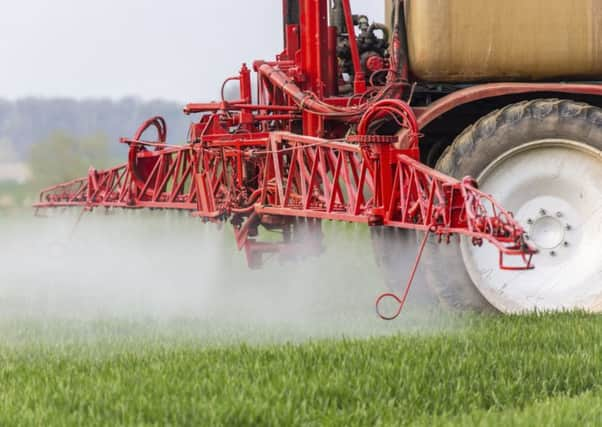Pink Ladies officer concerned overwidespread use of glyphosate


Jacqui Loughrey, an education officer with the Pink Ladies, reiterated her call for a ban after the ‘Journal’ reported nearly 60,000 acres of land in the North were sprayed with the controversial herbicide in the last two years for which data was available.
Ms. Loughrey was instrumental in getting a motion calling for the discontinuation of the use of glyphosate by Derry City and Strabane District Council tabled by Sinn Féin Councillor Patricia Logue at the start of this year.
Advertisement
Hide AdAdvertisement
Hide AdColr. Logue and Ms. Loughrey worked with Nick Mole, from the Pesticide Action Network (PAN UK) on the phrasing of the motion which called for the disuse of the weed-killer by the Council. The motion was passed unanimously on Thursday, February 28, 2019.
Following our report that 59,673 acres of land were sprayed with 18,071 kilogrammes of glyphosate in 2014 and that 56,886 acres were sprayed with 16,476 kilograms in 2016 - the last years for which data was available - Ms. Loughrey said it was essential other groups took action against the use of the weed-killer.
“PAN UK is actually calling for the end of use by farmers who use it as pre-harvest desiccation because it leads to higher levels of glyphosate residues in our food. As well as human health - it is suspected as being an endocrine disruptor - it has a negative affect on wildlife, insects and in particular hedgehogs,” said the Pink Ladies campaigner.
Endocrine-disruption refers to the adverse effect some chemicals can have on the human hormone system. This, Ms. Loughrey believes, can contribute to the development of illnesses such as ADHD, diabetes, breast cancer and prostate cancer.
Advertisement
Hide AdAdvertisement
Hide Ad“The Pink Ladies has campaigned alongside Dr. Lisa Connolly, from Queen’s University, on raising awareness on endocrine disrupting chemicals and herbicide and pesticide use is of concern,” she said.
In 2015 the World Health Organisation’s (WHO) International Agency for Research on Cancer (IARC) concluded that glyphosate was “probably carcinogenic to humans”. The motion moved by Colr. Logue and passed by DC&SDC in February resolved that: “As a council we pledge to discontinue the use of glyphosate in all operations with the only exception being when dealing with Japanese Knotweed, which will be injected rather than sprayed.”